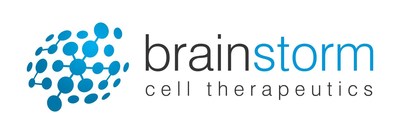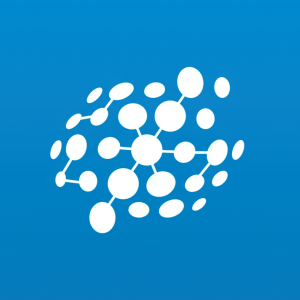BrainStorm Announces New Survival Data from Expanded Access Program Cohort: Remarkably 90% of ALS Patients Survived Over 5 Years with NurOwn®
Rhea-AI Summary
Positive
- 90% survival rate beyond 5 years compared to typical 10% survival rate in ALS patients
- Median survival of 6.8 years from symptom onset, with 6/10 patients still alive after 7 years
- FDA agreement on Special Protocol Assessment (SPA) for upcoming Phase 3b trial
- Relatively stable ALSFRS-R scores throughout the study period
Negative
- Small sample size of only 10 participants limits statistical significance
- One participant death occurred due to elective euthanasia
- Decline in Mean ALSFRS-R scores from 35.8 at baseline to 31.4 at EAP start
News Market Reaction
On the day this news was published, BCLI gained 12.73%, reflecting a significant positive market reaction.
Data tracked by StockTitan Argus on the day of publication.

The analysis reviewed survival from the time of first symptom onset through participation in the Phase 3 trial, EAP Periods 1 and 2, followed by additional survival data collected through publicly available records.
EAP participants presented at the start of the Phase 3 trial relatively early in their disease course, with Mean ALSFRS-R at Baseline of 35.8 (Range: 32 – 40), followed by Mean ALSFRS-R at the start of the EAP of 31.4 (Range: 27 – 38; with one outlier score of 13).
Key findings include:
90% of participants (9/10) survived more than five years from the onset of ALS symptoms, compared to published estimates indicating that approximately10% of individuals with ALS survive beyond five years. Notably, the single death in the cohort occurred following elective euthanasia.- The median survival observed in the EAP cohort was 6.8 years (range: 6 to 7 years) from symptom onset.
- Given that approximately
10% of individuals with ALS survive beyond five years[1], the probability of observing such extended survival in 9 out of 10 participants purely by chance is extremely low. This strongly suggests that the survival outcomes in this cohort are unlikely to be the result of random variation alone.
"These survival data provide encouraging real-world insights into the long-term experience of ALS patients treated with NurOwn under expanded access," said Chaim Lebovits, President and CEO of BrainStorm Cell Therapeutics. "We believe these findings add further evidence to support the upcoming Phase 3b clinical trial of NurOwn, to be conducted under an FDA Special Protocol Assessment (SPA). Our goal remains to generate high quality and conclusive data to demonstrate the benefit of NurOwn in people living with ALS."
Bob Dagher, MD, Chief Medical Officer of BrainStorm Cell Therapeutics, stated: "The fact that 9 out of 10 EAP participants surpassed five years of survival from first symptom - in contrast with the very modest expected survival pattern typically seen in ALS - represents a clinically meaningful observation. Furthermore, 6 out of 10 patients are still alive, even post seven years from symptom onset. These data further strengthen the scientific rationale to pursue our pivotal Phase 3b trial of NurOwn in ALS, under full alignment with the FDA guidance."
The NurOwn EAP was designed to provide compassionate access to NurOwn for eligible ALS participants who completed the Phase 3 trial. The observed durability of survival in this cohort, as reflected in the publicly sourced survival data, underscores the importance of advancing the upcoming registrational Phase 3b controlled clinical trial.
The NurOwn® technology platform (autologous MSC-NTF cells) represents a promising investigational therapeutic approach to targeting disease pathways important in neurodegenerative disorders. MSC-NTF cells are produced from autologous, bone marrow-derived mesenchymal stem cells (MSCs) that have been expanded and differentiated ex vivo. MSCs are converted into MSC-NTF cells by growing them under patented conditions that induce the cells to secrete high levels of neurotrophic factors (NTFs). Autologous MSC-NTF cells are designed to effectively deliver multiple NTFs and immunomodulatory cytokines directly to the site of damage to elicit a desired biological effect and ultimately slow or stabilize disease progression.
About BrainStorm Cell Therapeutics Inc.
BrainStorm Cell Therapeutics Inc. (NASDAQ: BCLI) is a leading developer of autologous adult stem cell therapies for debilitating neurodegenerative diseases. The company's proprietary NurOwn® platform uses autologous mesenchymal stem cells (MSCs) to produce neurotrophic factor-secreting cells (MSC-NTF cells), designed to deliver targeted biological signals that modulate neuroinflammation and promote neuroprotection.
NurOwn® is BrainStorm's lead investigational therapy for amyotrophic lateral sclerosis (ALS) and has received Orphan Drug designation from both the
Notice Regarding Forward-Looking Statements
This press release contains "forward-looking statements" that are subject to substantial risks and uncertainties, including statements regarding meetings with the
CONTACTS
Investors:
Michael Wood
Phone: +1 646-597-6983
mwood@lifesciadvisors.com
Media:
Uri Yablonka, Chief Business Officer
Phone: +1 917-284-2911
uri@brainstorm-cell.com
[1] National Institute of Neurological Disorders and Stroke (NINDS), NIH. Amyotrophic Lateral Sclerosis (ALS) Fact Sheet. https://www.ninds.nih.gov/health-information/disorders/amyotrophic-lateral-sclerosis-als
Logo: https://mma.prnewswire.com/media/1166536/BrainStorm_Logo.jpg
![]() View original content:https://www.prnewswire.com/news-releases/brainstorm-announces-new-survival-data-from-expanded-access-program-cohort-remarkably-90-of-als-patients-survived-over-5-years-with-nurown-302482187.html
View original content:https://www.prnewswire.com/news-releases/brainstorm-announces-new-survival-data-from-expanded-access-program-cohort-remarkably-90-of-als-patients-survived-over-5-years-with-nurown-302482187.html
SOURCE BrainStorm Cell Therapeutics Inc.







